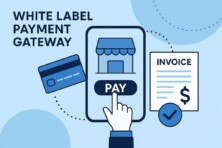
In today’s fast-paced and competitive business world, it has become essential for organizations to invest in leadership development to stay ahead of the game. Leaders play a role in shaping a company’s success. Equipping them with the necessary tools and resources for their growth is imperative. One tool that has gained popularity recently is the Learning Management System (LMS).
An LMS like Performance Pro serves as a platform that offers organizations a hub for managing and delivering their training programs. It comes with features tailored to support aspects of leadership development programs. Let’s explore further how an LMS can aid organizations in enhancing their leadership initiatives.
1. Centralized Training Platform
One of the benefits of using an LMS is that it consolidates all training materials into one location. This streamlines the process by eliminating the need to switch between systems and ensures uniformity in training delivery across locations or teams. A user interface allows leaders to access modules, courses, or resources relevant to their development journey.
2. Customizable Learning Paths
Leadership development does not follow a one-size-fits-all approach since every leader possesses strengths, weaknesses, and areas for improvement. An LMS enables organizations to create learning paths based on needs and preferences. Depending on their roles or career aspirations, leaders can select from a range of courses or modules that align with their objectives.
3. Blended Learning Options
Blended learning options by a good LMS provide flexibility in delivering leadership development programs. Organizations can blend classroom-style sessions with webinars or online classrooms to enhance training effectiveness and engagement.
4. Track Progress and Assessments
Tracking the progress of leaders within an organization is vital for refining strategies and evaluating program effectiveness. An LMS provides tracking capabilities that allow HR professionals or managers to monitor completion rates, course activity, and assessment outcomes. This data helps identify areas of strength and improvement, leading to interventions for each leader’s development.
5. Engaging and Interactive Content
To make leadership development engaging and impactful, it is essential to offer leaders learning content. An LMS gives multimedia features like videos, quizzes, simulations, and gamified modules that can capture participants’ interest and improve knowledge retention.
6. Peer Collaboration and Networking
Peer collaboration and networking play a role in successful leadership development programs by fostering peer learning and idea exchange among participants. An online learning platform offers features that allow users to engage in discussions, forums, and group projects directly on the platform. This enables leaders to connect with their peers from different locations, enhancing their learning experience by gaining insights from various viewpoints.
7. Ongoing Resources
Leadership development is a process rather than a one-time occurrence. An excellent online learning platform provides support by offering access to resources after completing training programs. Whether it’s articles, whitepapers, e-books, or industry-specific publications, an online learning platform equips leaders with knowledge beyond formal training.
8. Assessing Leadership Competencies
A structured leadership development program not only addresses skill gaps but also evaluates the effectiveness of training in developing essential leadership competencies. An online learning platform can include assessments and evaluations to measure leaders’ progress in communication, decision-making, emotional intelligence, and strategic thinking. By incorporating assessments and feedback mechanisms into the platform, organizations can monitor the growth of leadership skills. Identify areas for enhancement.
9. Analytics and Reporting for Informed Insights
An online learning platform with advanced analytics and reporting features enables organizations to make informed decisions, based on data, about their leadership development efforts. Organizations can gain insights into their programs’ effectiveness by creating in-depth reports on the completion rates of training levels of engagement scores on assessments and feedback from learners. This data helps improve learning strategies and showcase the return on investment of leadership development efforts to stakeholders within the organization.
Wrapping Up
A Learning Management System (LMS) serves as an ally for organizations seeking to deliver impactful leadership development programs on a scale by centralizing training resources, providing learning paths, enabling tracking features, boosting engagement through content, and fostering collaboration among leaders. An LMS becomes an essential tool for preparing future leaders.
Deploying an LMS to support leadership development reduces time and resources spent and amplifies the influence of learning initiatives within your organization’s talent pool.









